#cult psychology
Text
We should research Cult Psychology more. For no particular reason, by the way, is anyone feeling susceptible to emotional treatment and new beliefs?
#Cult Psychology#We have not done much research in that particular field#The Occult is interesting though.#tw cult#cults#Aph Posting
4 notes
·
View notes
Text
Cult Psychology
Cults in our midst
Cults are a complex phenomenon. When does a religion turn into a cult? How much choice do we have in joining these toxic organizations or is everything determined from cause and effect? This is a topic that excites such debate, as can be seen in Misunderstanding Cults edited by Zablocki and Robbins, but debate is needed. There are undeniable stresses that ex-cult members describe in their stories, but there are also personal deficits and susceptibilities that are exploited by these cult leaders. Cult behaviour can exist in governments, corporations, political groups, religions, psychology clinics, self-help groups and families. When people are emotionally invested in one organization or another, the need to defend arises in them, which clouds the problem. Because there is so much backlash from Cultists themselves who need to defend their own religion or belief system, I've decided to focus more on the phenomenology of Cults, instead of doing a diatribe about one particular cult or another. This way the debate between agency and determinism can be dealt with personally. By seeing how YOU are affected, because if negative relationships concern you, then you can make up your own mind based on how badly or well off you are after you complete a social transaction with a particular group. The controversial anti-cultist Margaret Thaler Singer wrote in Cults in our midst that "I have always been interested in words: how words create mental pictures, how those pictures stir emotions and call up other ideas and feelings, and how people use words to entertain, educate, and influence one another." This is the correct strategy for me. In the end we are the ones that decide where we invest our time, money and emotions. Does it really matter if a cult is religious or secular? If the results are the same, then no.
How much are we brainwashed and how are much are we brainwashing ourselves?
Where the controversy lies is Margaret's insistence in finding a brainwashing method where cult leaders are able to control people against their will. As can be read in Cults by James R. Lewis, he lays out the history of this intellectual conflict. Margaret was an expert witness in court cases involving cults, because of her expertise with soldiers dealing with thought-reform in Korea in the 1950s. But her role as an expert for courts ended when the American Psychological Association couldn't find enough scientific rigor to backup her claims. It's possible to go too far one way or another, because there are clear patterns of manipulation that leaders use, but there are also personal attitudes that make victims a perfect target. "It takes two to tango" as the saying goes. There are many weaknesses that victims have, but the most overlooked one is that of the natural search we all have, which is to believe there is a greater happiness somewhere else than where we are. When people realize they are victimized, they have trouble letting go of their belief that they found this better happiness. The fear in having to let go of an emotional investment and start all over again is a big reason that there is resistance to change. Margaret says that "modern day cults and thought-reform groups tend to offer apparent utopias, places where all humankind's ills will be cured. The cult's lure is, if you just come along, all will be fine, and everyone will live happily ever after." The term, lure, that Margaret uses is a good one. It brings up images of fishing and applying bait to a hook. "[Cults] form around a person who claims he or she has a special mission or knowledge, which will be shared with those who turn over most of their decision making to that self-appointed leader."
Is it Choice or Momentum?
We have limited, or deterministic environments, but in most cases we can choose in those environments among at least two choices or more. As Albert Bandura pointed out in Self-efficacy, the environment acts on us but we are also a part of the environment and can act on it. To act as if the environment is the only place where there's agency creates too much dualism between the human and the environment. Even if we have limited choices throughout our upbringing, the desire to try something new is partially a choice and the brain's natural deterministic tendency to seek novelty, which can propel a person to add new experiences to their life for comparison. As people age, they've tried a lot of things and fell down some holes in the wrong direction. Many will have discovered what activities make them most happy and engaged because they had experiences to compare. Ultimately the seeking of new experiences, and the cherishing of favourite ones, is an ebb and flow that adds variety to life coming from both the deterministic and agency perspectives. Does our brain feel bored with old experiences? Does the brain feel excited by encountering new experiences? When people have a variety of experiences, can people resist novelties that are suspicious and return to safer experiences? Without bad experiences it may not be easy to detect suspicious behaviour. Agency and determinism are intertwined and any brainwashing science must advance with this understanding. Science has to progress into DNA differences between people and their emotional content when they make choices. If some people have a desperate desire to connect with others and other people can resist more easily, science would have to explain that. Why do people tolerate human rights abuses in a cult, and why do some resist it? Why do some people escape cults and others remain all of their lives? Certainly there are influences that groups can act with on an agent, but agents also have weaknesses and beliefs that respond in the wrong way. By outlining the predictable methods, hopefully the reader can detect suspicious activity faster so they can avoid exploitation in any environment.
What people are like before they join a cult
For Margaret Singer, cults don't happen only to "weak and silly people." She says that "everyone is susceptible to the lure of these master manipulators. In fact, the majority of adolescents and adults in cults come from middle-class backgrounds, are fairly well educated, and are not seriously disturbed prior to joining." Her research indicated that "approximately two-thirds of those who have joined cults came from normal, functioning families and were demonstrating age-appropriate behavior around the same time they entered a cult. Of the remaining third, only about 5 or 6 percent had major psychological difficulties prior to joining a cult. The remaining portion of the third had diagnosable depressions related to personal loss (for example, a death in the family, failure to be admitted to a preferred university or training program, or a broken romance) or were struggling with age-related sexual and career dilemmas." Margaret also describes people who are young and looking for quick solutions to problems, and the elderly who are recently widowed and lonely. Some older persons also feel the urgency to find a spiritual meaning for their lives as death approaches. The most important vulnerability is in modern life itself. "Another kind of vulnerability, or stress factor, evolves when a person, especially an adolescent or young adult, feels overwhelmed by the sheer number of choices he or she needs to make, the ambiguity of life at this age, the complexity of the world, and the amount of conflict associated with many aspects of daily life. In addition to facing pressing personal decisions, many adolescents are attempting to come to grips with their overall values, beliefs, and purposes...They commonly describe classes, teachers, and experiences that they felt destabilized their views of the world, leaving them frightened by the complexity of making seemingly endless decisions. Feeling lost and alone, they felt a need to find affiliation and some simple ways to make their lives work. Without intending to make such a choice they found themselves swept along into a group that offered simple and guaranteed paths to follow." It's not only the youth that are confused. Canadian Professor Stephen Kent talks of a cult he has studied that had in its attendance "aquarian-aged people who've grown up expecting the world to be filled with peace and happiness but have been left disappointed."
If there's a thread that groups all these people together in these examples, it is a population of people looking for purpose and meaning in their lives and can't find it in conventional ways. Economic destruction, technological complexity, broken relationships, loneliness, victimization, addictions, conflict, fear and isolation, lead to so many types of people to become primed for joining a cult. Margaret says that "being depressed and being in between important affiliations...[can make us] especially vulnerable to persuasion and suggestion because of some loss or disappointment that has caused a depressed mood or even mild to moderate clinical depression. And we're especially prone to the cults' kind of influence when we're not engaged in a meaningful personal relationship, job, educational or training program, or some other life involvement." That gap is filled by the cult which offers "an improved state of mind, an expanded state of being, and a moral, spiritual, or political state of righteous certainty." Unfortunately "that supposedly beneficial state can only be reached by following the narrowly prescribed pathways of a particular group master, guru, or trainer...The new recruit...must surrender his or her critical mind, must yield to the flow of force, must have childlike trust and faith."
Exploiting your ambition to improve the world
Since cults need money, they focus on people who already have enough resources. The main way to get money is via donations and selling courses. Cults "target employed persons with money-making skills, to whom [they] will sell 'courses,' gradually hooking these people into greater and greater commitment to the group, as well as selling them more and more expensive courses. Some of these recruits end up leaving their jobs and working for the cult to pay for courses." These courses teach how to "scientifically reduce stress in your life, how to manage your office and become a millionaire, how to get control of your life, how to live forever, how to detect if you have been abducted by space creatures, how to reach perfect enlightenment and govern the world, how to live past lives, and on and on...Offerings are worded as if the group were specifically made to benefit you. You usually do not learn the full story (and real purpose) of the cult until long after becoming embedded in the group." This is a selfish element to self-development, but not all people want to be rich and master the world. "Former cult members commonly reveal that they were looking for companionship or the chance to do something to benefit themselves and mankind. They say they were not looking for the particular cult they joined and were not intending to belong for a lifetime. Rather, they were actively and/or deceptively pressured to join, soon found themselves enmeshed in the group, were slowly cut off from their pasts and their families, and became totally dependent on the group." Margaret looks at the power hierarchy not even as a pyramid, but an inverted T ┴ where the cult leader receives the vast majority of the rewards. One can easily make fun of the symbol. It's shaped like a prick, so cultists are pricks and they "screw" you.

Times of social change
As people are primed by a sense of lack, depression and even personality disorders, their lack distorts their perception with hunger and yearning. Perception is coloured by emotion. Like putting on glasses with a tinted colour, the vision desperately searches for THE answer. "...when segments of society cannot see where they fit in, what the rules are, or what the socially agreed-upon answers to life's big questions are, then, like a dormant disease, the ever-present potential cult leaders take hold and lure followers to their causes...These determined self-designed gurus seem always to be lurking on the sidelines ready to step in and offer answers to life's problems. They claim they have the only and sure way of life. They induce people to follow them by touting a special mission and special knowledge. The special mission is to preach the contents of a supposedly 'secret' learning, which the leaders assert can only be revealed to those who join them...Historically, we have seen that as a fabric of a society unravels, self-appointed leaders easily recruit a following. People at a loss to make sense of the mayhem around them look for direction and become more approachable and vulnerable to the manipulations and exploitations of these skilled con artists. Certainty and simple solutions for the complex problems of decision making become attractive offerings in a world that appears to be unstable and rapidly changing." Margaret lists historical events that increased the power of cults including, the fall of Rome, the French Revolution, the Industrial Revolution, European colonization, the aftermath of World War II in Japan, the 1960's rebellion in the West, and the breakup of Communist regimes.
Cult methods
Whether it's people on streets with signs, well dressed people standing next to sidewalk recruitment displays or people selling get rich quick schemes, they are offering you the answers to life. Once a possible recruit has engaged with a cult recruiter the problem is how to keep the momentum going until the recruit makes big commitments that are hard to get out of. How to keep people in cults and to have them continue giving money, time, and free labour requires a lot of misdirection as you can expect. Victims must be unaware that they are being duped. Many recruits who lost all their money and property, only became aware of their trap after they became dependent on the cult. Recruiters with no money left have to work for the cult by becoming recruiters themselves. This pattern recycles over and over again. Old cults fall only to have new ones pop up with a different mission. People who are aware of these tactics escape, and avoid them, but adults still ignorant of cults and younger generations with less experience, become the new targets. It's important to know these tactics because they can be used in any legal organization. How you get caught is believing in the front the cults use to disguise themselves, their clothing, their acting, their lifestyles, and their promises of happiness. This includes, in my experience with a door-to-door religion I shall not name, pimping out women to use sex to gain followers.
Find a front: The first step is to find a place to recruit people. Cults need a front so that people are unaware of their secret agenda to exploit people. Sidewalk displays are obvious to many people, but they still work. Many cult members try to develop successful careers to recruit people who admire them and treat them as role models. Another area is finding a big-tent mainstream religious group to target people who are disappointed with their religion and are open to join a sect or a cult. For non-religious types, a secular approach is to teach courses and rent out locations in the city. Courses include teaching public speaking, learning English as a second language, getting rich quickly with vague business ideas, learning how to buy and sell risky investments, and many other skills. As people are up-sold more courses, they eventually meet the more embedded cult members.
Change beliefs: Like with George Orwell's 1984, Cults in our Midst shows the power of language. Language can harbour a premise with a worldview. If you adopt the language, without vetting the premise, you adopt the worldview. By wanting to imitate senior role models in the organization to bolster self-esteem, the new recruit starts to speak like them and view the world in the same way. Limiting the language allowed begins to limit the thought process. This can be found even in normal society when political correctness covers up facts.
Destablize the self: Many recruits already have a compromised sense of self. They have shame, low self-esteem, and low self-efficacy. This can continue and deepen further by creating an environment of fear, powerlessness, and dependency. This is done with social conditioning. In Cults: Faith, Healing, and Coercion by Marc Galanter, he explains this relationship. "At the heart of this process lies the relationship between a pattern of social behavior and a biologically grounded motivation, or instinctive drive, that I have termed the relief effect. It operates as follows. When people become involved in a charismatic group, an inverse relationship exists between their feelings of emotional distress and the degree to which they are affiliated with that group. Individuals' capacity for commitment to the group is mediated by the relief of neurotic distress, relief that they experience on affiliation and continued membership; the closer they feel toward the group, the less distress they feel. Conversely, if they disaffiliate from the group a bit, they are prodded to return by the increased distress they are likely to feel. Thus, zealous group members feel unhappy or dysphoric when removed from their group. A committed member of Alcoholics Anonymous, for example, typically reports feelings of unease or being out of sorts when he or she misses a number of meetings...Each minor episode of reward and punishment, on moving closer to the group or further away, functions as an operant learning experience that conditions subsequent involvement. The process is indeed similar to a conditioning experiment in which an animal is rewarded each time it spontaneously carries out a particular behavior or punished for acting in a contrary way. After several such spontaneous acts and their associated consequences, the experimental animal will carry out that behaviour consistently, even when further rewards are given only [INFREQUENTLY]...Thus, by relieving neurotic distress individuals are engaged into the charismatic group and learn to comply with the behaviors it promotes..." That was a neat description of intermittent reinforcement, where positive rewards are loaded at the beginning of the relationship which becomes a lure to make victims tolerate ever more abusive behaviour with the promise that the positive rewards will return.
Confession: The bond is furthered with confessions. By giving personal information about indiscretions, no matter now small and trifling, it's used against the person to make them feel even more inferior and dependent on the new system to bring the recruit out of wretchedness. This is precisely how an authority figure can be put inside of your mind, just like a parent. The mind self-polices and represses healthy defense mechanisms, critical thinking, and normal human desires. This can be seen in my review of Daniel Paul Schreber and the book Soul Murder. This kind of conditioning helps to foster Stockholm Syndrome where victims identify with the abuser, because the abuser has personal information they can blackmail the victim with. Leaders also create a lot of paranoia. They look omnipresent and have other recruits who can stalk for them. For many victims, the only person who can relieve the stress is the leader who can choose to relax these threats, so they choose to support them in their activities in order to gain relief.
"Self" development: Once the "bad self" is exposed for the pathetic, disgusting, perverted, incapable wretch that he or she is, then the only group that can help them is the cult. Purchasing ever more expensive courses, because each course is never enough, leads to financial dependence. Slave labour for little or no pay prevent escape from those who have no money left or job. All the prior conditioning forces isolation from family, friends and normal jobs. The courses themselves also create lots of damage because the person is now so dependent on the leaders that the feeling of teaching and learning on one's own is replaced with a learned helplessness and codependency. Any decisions made on one's own feel risky and require validation from the cult to develop confidence. The irony is that, like with tarot cards, the answers that people find in these courses are actually self-created. We fill in the gaps, including filling in the empathy the leader is missing. The courses themselves are so general and lack details, they are next to useless. In an article I read on a Canadian Christian cult, one follower describes her leader's speeches. "Have you ever taken acid?...That's what it's like when you hear [Him]. You listen and then suddenly something snaps and you get it." That snap is explained by Stephen Kent. "They expect a guru up there pontificating—but he doesn't say much. If you look at the message, there's not a lot of substance to it. Many of the people are widely read in spirituality issues. They fill in the absence of the thoughts with their own knowledge and hopes and aspirations. So they give [him] meaning that he himself may not even realize." One can find better information at a library for free than what are found in so many of these courses. Instead of self-development, it's more like regression where one can only survive and make decisions with permission from the group. The independent mind is gone. Then when there are needs for self-protection, the victim falls back and tolerates weakening themselves to prop up the group's activities. Marc says, "when one joins a charismatic group, one gives up the opportunity for independent decision making and complies with the group's norms, which may conflict with one's own adaptive needs."
Plant and Krauss - The Fortune Teller: https://www.youtube.com/watch?v=s5DeIcYD6xE
Feedback: Cults gain more power over the agency of others by learning from feedback. As members come and go, certain tactics will seem to be more effective than others and can be repeated. One of the typical tactics is to focus only on positive feedback within the group, and to minimize focus on negative feedback. This includes scandals within the organization that are kept secret from newer and more skeptical members. Remember, the cult leader is in it for the goodies that all psychopaths and narcissists want. They want consumption, easy sex, sadism, and the pleasure of duping people. They are constantly bored and need stimulus. Eventually you have layers of people who are more "in the know" than others, controlling the morale of the group. This dance continues as negative feedback about the outside world is emphasized as well as positive feedback related to being part of this significant group. Good results for the cult lead to members applying self-censorship of negative feedback so that they can independently recruit others from the rest of the world and persuade them to stay using their own zeal. As individuals move up the hierarchy, some naturally don't believe in the system, but only what they can gain from it. Others continue believing all the way up the leadership and can be counted on by the cult leader to follow their orders, no matter how insane.
Daniel Paul Schreber: https://rumble.com/v1gu84v-case-studies-daniel-paul-schreber-freud-and-beyond.html
Stalking: https://rumble.com/v1gvhk1-stalking-world-narcissistic-abuse-awareness-day.html
Saints and Psychopaths: https://rumble.com/v1gosbb-saints-and-psychopaths-by-william-l.-hamilton.html
The Empathy Trap: Understanding Anti-social personalities - Jane and Time McGregor: https://www.isbns.net/isbn/9781847092779/
1984 - George Orwell: https://www.isbns.net/isbn/9780451524935/
Deprogramming
Margaret talks at the end of her book about what happens to victims who escape. Ex-cultists often aid counsellors by showing escapees a new way of living without the cult. Providing evidence of the leader's vices and misdeeds provides sobering realizations and a counter to all the conditioning and idol worshiping. Many have relationships that need mending and defensiveness over being manipulated by a cult has to be let go of. The conditioned trance-like states that were sustained for so long can continue for years, but they fade over time. In a safe environment, thoughts about what the leader will say or do if you exercise your freedom, that caused so many stressful thoughts about the future, fade away when there's no cult to reinforce them. Relief!
The big consequence of being in a cult for so long is that people didn't develop themselves during that time with the real skills that they needed. When they leave a cult, they have a lot of re-skilling to do. The real self-development. New technologies and methods used in the workplace have to be adopted. Some employers are understanding and others are not. It's not easy to explain gaps in your resume in an interview by saying that you worked for a cult for 11 years. Honesty and communicating lessons that were learned, is the only way to gain back trust from others in the outside world. Dating also becomes difficult for the same reason. Is the ex-cultist trustworthy? Are they mentally ill? More hits to the self-esteem happen, but the lesson is learned because a free life can now be compared to the cult life. There's no confusion on which is life is better. The victim learns to see where they gave their power away and takes on all those responsibilities themselves. The reward is learning to enjoy one's own company, trust one's own decision making skills, and to benefit from those choices. It's real feedback that is not filtered through the distorted mind of a personality disordered cult leader. The best way to deprogram from my point of view is to look at the world as a place full of promises. Sometimes the actual product or experience surpasses the promises, which is fantastic. Much more often promises fail. Ask the question: "Does the promise point to a place, person or thing that gives you more mental peace and nourishing love?" The answer will be NO in most situations. Eventually you go back to your old hobbies that you used to enjoy. Relationships are realistic and based on skills, and in fact you find that you only go into Flow states when you are engaging in activities where you have skill. Developing skills at the beginning is the stressful setup, but enjoying the skills afterwards is the payoff. When you realize that you control more of your happiness than people promising you something, you'll never want to give that power away again. The healthy feeling is being a person that enjoys doing things themselves. People are always looking for projects to relieve boredom. Why give decisions and credit to other people when you can do it yourself?
How cults remember you
Ex-cultists now become outsiders. Cult leaders often have derogatory terms for their "enemies" and it's all based on how the mind can objectify people. Followers are essentially uses and tools to gratify the leader. Their care is only based on how useful you are to them. Since that's all that's important for the leader then that's all they'll remember of you. I'm reminded of a meme I saw that someone posted on Facebook to describe how Narcissists see you. It replaces the word LOVE with USE. "I use you!" "I will always use you!" "You are the greatest use of my life!" Senior members in the cult are not in an envious position. They are still draining their limited life span with parasites. The game for the cult leaders is to get enough money so that they can enjoy their lavish lifestyles long enough to retire to a warm climate and fade into anonymity. Victims often think of Karma and all the bad things that will happen to those people, but this is also an illusion. Our happiness cannot be dependent on what happens to them. Many will meet Karma and others will not. One thing is for sure. The cult leader knows what they are and because of that they can't trust anyone else. Their life is chasing higher mental states making them addicted to externalities. As these people age, they will have to suffer withdrawal symptoms every time they have to give something up as they move closer to natural death. The worst legacy they leave behind is an illusory template of happiness that new generations will imitate.
Cults in Our Midst: The Continuing Fight Against Their Hidden Menace - Margaret Thaler Singer: https://www.isbns.net/isbn/9780787967413/
Cults: A Reference Handbook - James R. Lewis: https://www.isbns.net/isbn/9781851096183/
Misunderstanding Cults: Searching for Objectivity in a Controversial Field - Editor-Benjamin Zablocki, Editor-Thomas Robbins: https://www.isbns.net/isbn/9780802081889/
Cults: Faith, Healing and Coercion - Marc Galanter: https://www.isbns.net/isbn/9780195123692/
Self-efficacy: the exercise of control - Albert Bandura: Paperback: https://www.isbns.net/isbn/9780716728504/
The Canadian Man Who Commands a Cult with His Gaze - Stephen A. Kent: https://www.vice.com/en_ca/article/xd5eqz/inside-a-canadian-staring-cult-224
Out of the FOG - Intermittent Reinforcement: https://outofthefog.website/what-not-to-do-1/2015/12/3/intermittent-reinforcement
Psychology: http://psychreviews.org/category/psychology01/
0 notes
Text
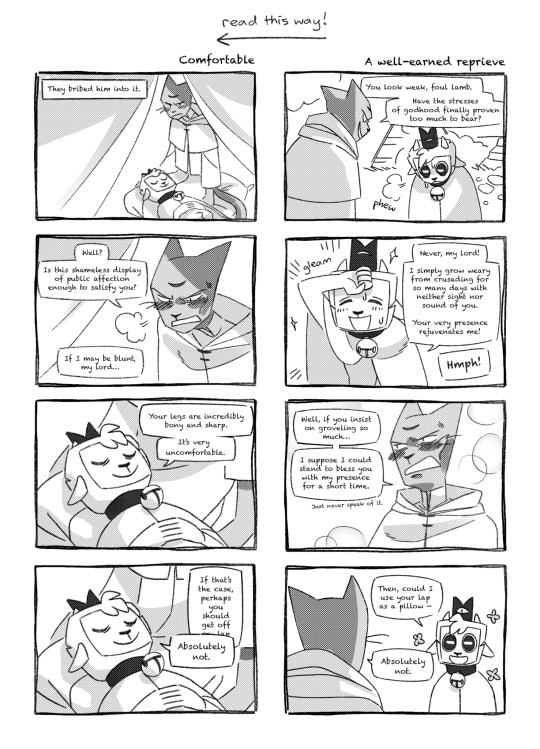
4koma
#cult of the lamb#cotl lamb#cotl narinder#narilamb#fio draws#my lamb can be cute sometimes as a treat#when they’re not inflicting immense psychological harm
2K notes
·
View notes
Text
Is your love language really acts of service or were you raised with the sole purpose of being a caregiver for all of eternity??
#afab and raised Mormon trauma club#also let’s add eldest daughter psychology to that too#exmo#exmormon#eldest daughter#ex fundie#ex cult#ex jw
620 notes
·
View notes
Text

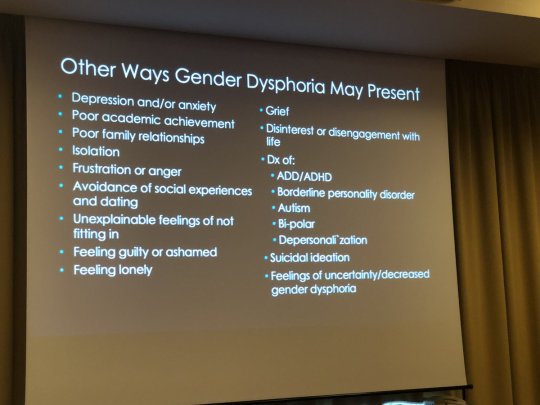
[ Source: EPATH Conference 2019. ]
Apparently being a regular teenager is a disorder requiring medical treatment and the removal of body parts. Not only are you "trans" if you don't fit a 1950s Barbie/G.I. Joe stereotype, you're "trans" if you don't fit a 1950s "golly, gee" soda shoppe "Leave It To Beaver" stereotype.
This is the same tactic psychics use to tell you your fortune, and astrologers use to convince you that distant stars reflect your personality. It's called the Forer Effect, or Barnum Effect.
To really drive home the cult programming, any time you're feeling better, that's how you know you've gotten worse.
For political and ideological reasons - for example, one presenter actually claims that children are being "misdiagnosed" as autistic when they're actually trans - they've flipped the symptom and the cause.
This is more accurate:
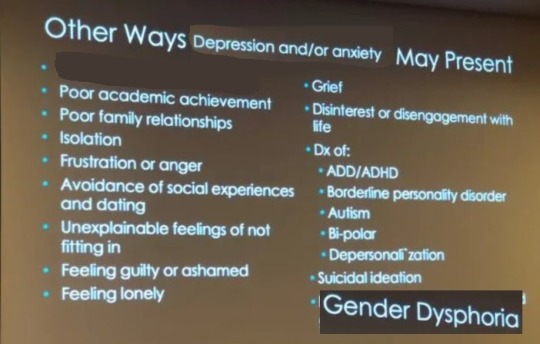
#Wilfred Reilly#gender cult#queer theory#gender ideology#mental health#mental health issues#gender dysphoria#gender anxiety#puberty#unethical#medical scandal#medical malpractice#ideological capture#psychology#human psychology#sex trait modification#genderwang#religion is a mental illness
735 notes
·
View notes
Text
Round 4: Mabel Pines (Gravity Falls) vs. Amane Momose (MILGRAM)
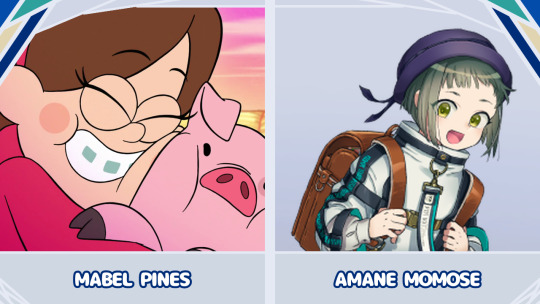
Propaganda below the cut
Mabel Pines (12):
I literally saw a tiktok today about how Mabel is a bad person. She’s 12! Like yes, she has made some mistakes and bad choices, but so has everyone else. And I never see any of the other characters in the show criticized the way she is. Everyone in the show has made mistakes (Grunkle Stan commits crimes practically every episode ffs) but because Mabel is a 12 year old girl and acts like it, she gets the most hate. Mabel deserves to be loved 🩷
----
girl gets so much flack for being... immature and kind of selfish at age 12? like she had whole video essays made on why she is a horrible person who deserves punishment. god forbid girls be silly
----
!!! Spoilers for Gravity Falls last 5 episodes !!!
This has gone down a lot but when the Weirdmaggedon arc was happening, the finale of the series, a big part of the fandom started hating Mabel because she accidentally caused the Weirdmaggedon (basically an apocalypse + bizarre shit like the water tower becoming an eight-legged monster with a giant mouth).
For context, in the episode that starts this arc, "Dipper and Mabel vs The Future", Mabel is really excited to the end of their summer vacation at Grunkle Stan's house, since it will be her and Dipper's 13th birthday and they will enter high school (her idea of high school of course coming from teen movies). But then this whole idea starts to shatter when Wendy tells her that high school isn't like a Disney musical, but it's okay, she will get through this since she will be with Dipper, her twin brother...
Except, that Dipper receives an invitation by Grunkle Stan's scientist brother Ford to become his apprentice after summer ends, staying in Gravity Falls, without Mabel. When she discovers it, she gets really mad at him and in a fit of rage, she accidentally picks Dipper's bag instead of hers and runs off to the woods.
When she gets there, Blendin, a time-travelling friend of theirs finds her and tells her that he has a way of making her brother stay with her, and make the summer take a little more to end, and that he just needed a little thing that Dipper has in his bag. That thing is a dimensional rift that Dipper and Ford contained to not cause the Weirdmaggedon, but Mabel didn't knew about that and gives it to Blendin. Blendin then breaks it and it's revealed that Bill Cipher was controlling Blendin to get the rift and release the Weirdmaggedon. He then traps Mabel in a bubble, starting the final arc of the series.
So, a few episodes later, that bubble she's in is revealed to be a world of fantasy that she controls, and that she didn't want to leave that world, as she was scared of growing up etc.
Context given, A LOT OF PEOPLE HATED HER FOR THIS. Suddenly people started seeing Mabel as just a selfish girl who wanted things only her way, when she was only a 12-year-old scared of growing up without her twin brother (they do end up going back together at the end but still).
The worst part is that apparently the people behind it took note of this, and on the comics that where released after the finale, she is a selfish spoiled brat. I haven't read the comics though so I'm going off what some people said about it.
Amane Momose (12):
Amane was voted guilty in the first trial so that she would acknowledge her guilt. It backfired, and now she’s considered a threat. Well, everyone is a threat, but nobody’s threat level has been as heavily discussed and debated as hers. Consider the next prisoner in line, Mikoto. He’s objectively more dangerous and cannot be restrained. He beat up the guard in trial 1, and he was able to hold his own when the other guilty prisoners were attacked. But a good incentive to forgive him is so that he will calm down. You know what? That’s a good incentive to forgive Amane too! But she *can* be restrained, so a good portion of the discussion went into how she should be voted guilty so she *will* be restrained and not a threat. Since her vote was a near 50/50, of course a good chunk of the voters expressed dissatisfaction with her forgiven verdict. Some are already planning to vote her guilty for trial 3, calling her a “lost cause”. She hasn’t even done any concrete harm yet. Hold the pitchforks until she actually causes harm, please? And what if she *was* voted guilty in trial 2? We’ve been warned that she will continue to deny our judgement. A second guilty verdict won’t make her better either, and then what? She’d be called a “lost cause” as well. There is no winning with her.
----
Where do I even start? So first of all she’s an cult child who was physically and mentally abused and tortured by her parents and then (presumably) murdered her mother after her mother killed a cat that she took care of.
Now everyone in Milgram is a murderer but when Amane came and her MV showed her murder and circumstance in an admittedly highly fictionalized depiction of it the audience decided to…repeat the cycle of abuse!
She was voted guilty for the main reason of “teaching her” and helping her “realize that she was abused.” I would like to note that this tough love approach is something her parents utilized against her. “We are only doing this to help you.”
So the audience replicates Amane’s abusers and repeats the cycle of abuse and that’s pretty shitty but it isn’t exactly “Fuck Em Kids” level.
And then Trial 2 happened. Cause Amane is bitter and angry and horrifically traumatized so she acts aggressive and hostile. Especially towards another prisoner.
Now, again, everyone here is a fucking murderer (of atleast could be constructed as one) These people being able to Harm is a core concept of this series.
Yet for some reason it feels like people treat Amane as a “delusional creepy kid who wants to kill people” which completly takes away the nuance of her character. She does have the capacity to harm! Everyone here does! She’s not Uniquly Dangerous! She just has a Reason to be Dangerous. A Reason we GAVE HER by REPEATING THE CYCLE OF ABUSE.
In short: In a series full of Murderers I’m honestly a bit pissed that the 12 year old abuse victim is the one who’s treated like the guy from American Pyscho.
----
TL;DR: "We metavoted this abused, indoctrinated child guilty in trial 1, but it didn't work. Now she is a threat to three grown adults: one who is fully free and two whom she has been shown to get along with. Please metavote her guilty again so she will be restrained and unable to attack them, even though that means subjecting her to further psychological torture." Amane Momose is the youngest of ten murderers, prisoners of Milgram who are to be judged innocent (forgiven) or guilty (unforgiven). In the first interrogation (voice drama), she said that what she did was in line with her religion's doctrines. If we judged her the "wrong way", she said she will just deny the verdict. Combining the voice drama and music video, you could piece together that she was raised in a cult and abused, even though she is cheerful and downplays her pain. She never shows *who* she killed, only *why* she did. After the first day of her vote, she was 81% innocent, but this wouldn't last the whole three months. Many people voted her guilty so she would "see her sins", part of the practice commonly known as "metavoting". Her innocent percentage rapidly decreased, and she hit guilty in the last 15 days, finishing at 51% guilty. At the end of the first trial, Jackalope (who is something like a host) went over all the prisoners' verdicts and commented on the general reasoning. When he got to Amane, he *laughed* at the audience for voting that way to make her realize her sins. Trial 2 rolled around, and it was revealed that Amane's victim was her abuser. On day one, she was at 74% innocent. Seems like a cut-and-dry case now, right? Well... in the intermission, two of the prisoners (Fuuta and Mahiru) were badly beaten up and became reliant on the care of Shidou, a doctor. Amane became hostile to Shidou because what he was doing was against her beliefs. She visited all three of them on their birthdays to convince them to change their ways. She seems to be especially close to Fuuta, who is now murmuring about salvation. Guilty prisoners are psychologically tortured, forced to listen to voices that reject their beliefs. Fuuta and Mahiru both say that the mental strain is worse than their physical injuries. But Amane, who also looks worse for wear, was thrown under the bus because she isn't injured and is considered a physical threat to them (never mind that she gets along with them). She's considered a threat to Shidou, a grown man who is twice her size and fully free, while she is partially restricted by the long sleeves in her trial 2 uniform. She might indoctrinate Fuuta even though, in a prison of ten people and one guard, she's the only voice of her cult. Fortunately, she got a break. Her vote was falling at a similar rate to the first trial. But this time, it stabilized at 51% innocent, 12 days before the end of her vote. But there's no way this is over.
#yall hate kids tourney#round 4#gravity falls#mabel pines#milgram#milgram project#amane momose#momose amane#cw child abuse#cw cults#cw torture#cw psychological torture#cw animal death
105 notes
·
View notes
Text



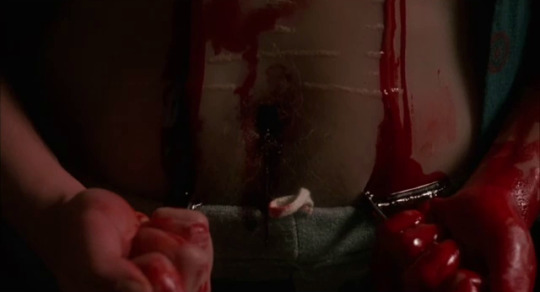
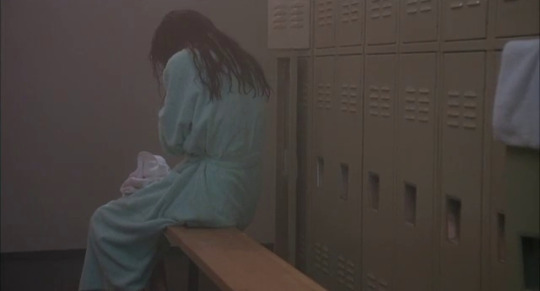
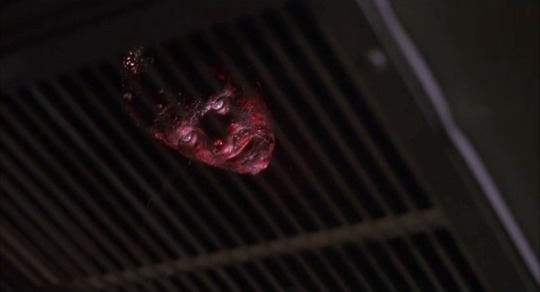


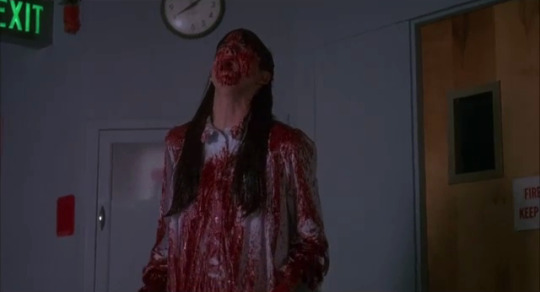
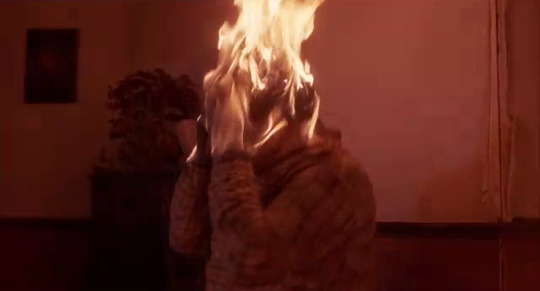
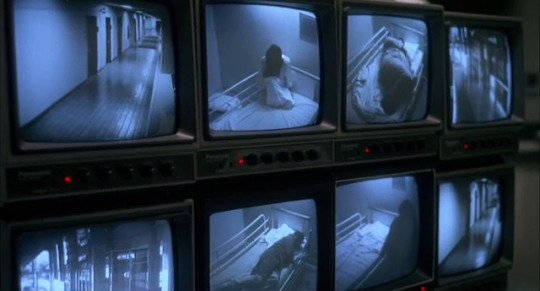


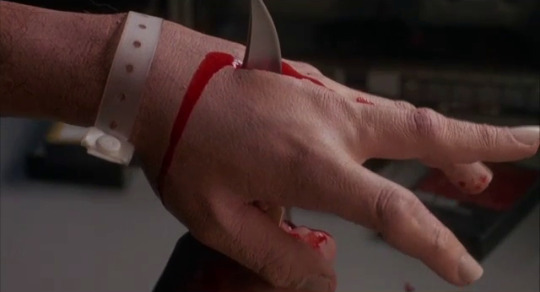
Bad Dreams (1988)
#bad dreams#my posts#horror#horror movies#horror film#80s horror#andrew fleming#screencaps#film#horrorcaps#movies#80s movies#scary movies#horror gore#cults#grindhouse#exploitation film#horror stills#movie caps#horror community#psychological horror#creepy#scary#cult horror#horroredit
87 notes
·
View notes
Note
Hey I have a question but are you the original creator for mafia mob au or is someone else cause I think I stumble in a TikTok creater and they made a mafia wally au. Both arts are amazing but I was just curious to know.
I think I know who you may be talking about! There is basically two “mafia” aus lol, theirs and mine- our aus are completely separate from each other and from what I know, have no affiliation with each other whatsoever besides coincidence of universe
#Theirs is the “Mafia au” while mine is the “Mob au”#Another reason why I don’t really call mine the “Mafia” au is due to a mix of things I add to my stuff#(Cult like behaviors- psychological warfare- abdominal nightmaric horrors- etc etc JDHDD)#I think they are more focused on building Wally-?#I focus a lot more on basically everyone else LMAOOO#I probably should draw mob Wally more-#He is the face of it all smhh and his hair is fun to draw#I like making it as a “not what meets the eye” kinda au#Like oh you think it’s just this but it’s so much more deeper and fugged up JDHDHHD#Nobody remembers anything and even if they try there is a force stopping them#Is it psychological? Is it from a giant suspicious house god father? Is it the drinks? Who knows!#Well we kinda ish know but still lmAOOO#Wait that reminds me#I need to make a list of everyone’s “usual” drink is at the bar-
352 notes
·
View notes
Text

i forgive her
#wip#orin the red#art tag!#bg3 antagonists actually make me upset with how fecked up they are esp orin#i love slasher stuff and psychological fuckuppery#bhaal cult fulfills this#i also am very easily disturbed by it perpetual cycle LOL#just wanted to post this closeup cos from far away those vein thingies will NOT be showing
61 notes
·
View notes
Text




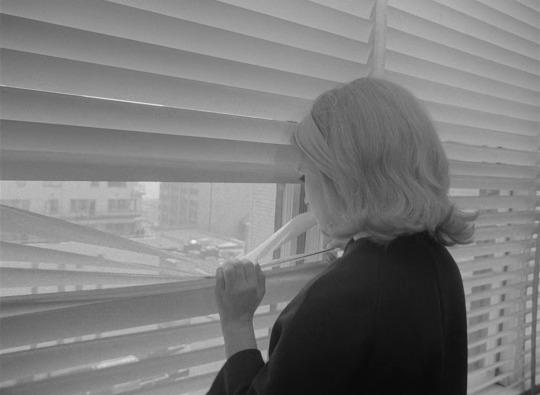
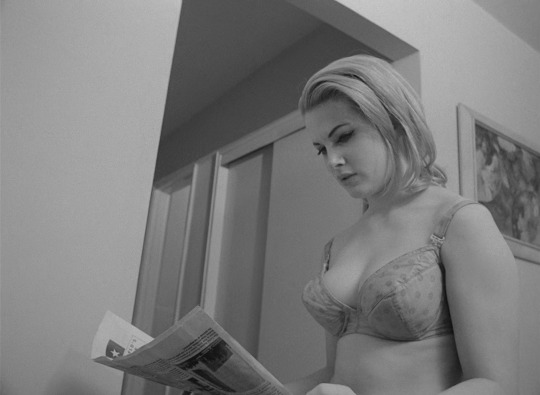



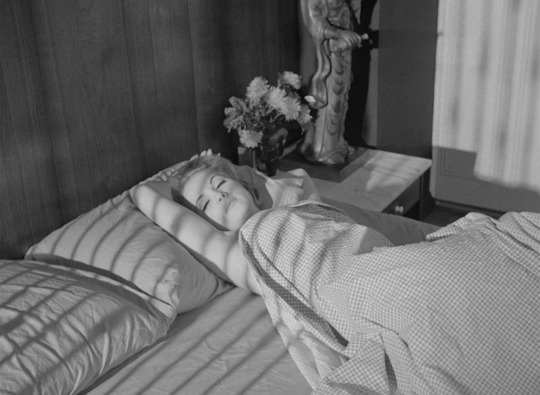
Bad Girls Go to Hell (Doris Wishman, 1965)
#films watched in 2023#Bad Girls Go to Hell#Gigi Darlene#seis#black and white#back#bed#sunglasses#cult#drama#sixties#fashion#psychological drama#Doris Wishman#1965
371 notes
·
View notes
Text
Dependent Personality Disorder, Kevin Day, & the Edgar Allan Ravens
brought to you by an ex cult pastor w/ crippling mental issues
well let’s just jump right into it ngl (also if I miss anything or forget something give me a pass I have amnesia and a one track mind so I definitely missed stuff)
Okay so the whole Ravens always have a partner, never go anywhere alone, if one fails you both pay, etc. I’ve been thinking about this for weeks and I don’t see it broken down and discussed at length enough, so imma try to do that from a mixed personal experience & psychology perspective
The fact Jean, Neil and Kevin have all stated in books and in the extra content that not having that presence next to them was devastating (much less so for Neil okay he didn’t spend fucking years there); Nora has also talked about how Ravens are basically unable to function if left alone; you can’t send them to the store alone or leave them places or expect them to be capable of completing tasks without their other half; TSC reeks of Jean having to learn how to function without a double and it’s gonna be a trainwreck for Jeremy bc how the fuck can Jean be this old and not feel able to have a room on his own anyways—
What is Dependent Personality Disorder?
The DSM-5 refers to DPD as a pervasive and excessive need to be taken care of, which leads to submissive and clinging behavior and fears of separation. It is characterized by excessive fear and anxiety. DPD begins by early adulthood, is present in a variety of contexts, and is associated with inadequate functioning. Symptoms can include anything from extreme passivity, devastation, or helplessness when relationships end; avoidance of responsibilities; and severe submission.
According to the DSM-5, the disorder is indicated by at least five of the following factors:
has difficulty making everyday decisions without an excessive amount of advice and reassurance from others.
needs others to assume responsibility for most major areas of their life.
has difficulty expressing disagreement with others because of fear of loss of support or approval.
has difficulty initiating projects or doing things on their own (because of a lack of self-confidence in judgment or abilities rather than a lack of motivation or energy).
goes to excessive lengths to obtain nurturance and support from others, to the point of volunteering to do things that are unpleasant.
feels uncomfortable or helpless when alone because of exaggerated fears of being unable to care for themselves.
urgently seeks another relationship as a source of care and support when a close relationship ends.
is unrealistically preoccupied with fears of being left to take care of themselves.
Since I only need 5, and I don’t want to bore everyone to death, I’ll just do 5.
needs others to assume responsibility for most major areas of their life
Kevin spent well, basically his entire life having everything picked out for him by others. Exy was chosen for him. Where he lived, when he slept, what he ate and when was chosen. Riko and Tetsuji dictated his every fucking step up until he left. Kevin didn’t learn anything he wasn’t supposed to learn and therefore automatically expected others to do it for him because that’s what he was taught to do. Kevin’s only skill in life is Exy, which means he doesn’t have any other skills (well he does, he just doesn’t think they’re useful or important). Ravens are taught to be dependent on each other because without each other, they’re not whole or a person; they’re dehumanized until they begin to assign responsibility to someone they think is more equipped for it, is better for it, which is usually an authority figure (in this case, those figures are Riko and Tetsuji). Tetsuji knew exactly what he was doing by creating the psychological mindfuck of an inter-dependent group that is the Ravens. He took a bunch of young adults, gave them a god, and then helped that god beat them into numb dissociation until they couldn’t think for themselves and were even afraid to.
has difficulty expressing disagreement with others because of fear of loss of support or approval
Reminder that DPD is prevalent in people who have been excessively abused and it’s also characterized by extreme anxiety. For people like Kevin and the Ravens, expressing anything other than what Riko and Tetsuji wanted could get them killed; it wasn’t just about being terrified of disapproval or protection, it was because losing anything from the group meant you were gonna get hurt (usually badly). Jean was literally waterboarded for shits and giggles, you think Riko is gonna take someone saying no very well (Neil Josten drove him insane I can tell u that much)? Ravens have a hive mind mentality because a hive mind keeps them alive and safe. Kevin had a hive mind when he was with Riko, and I’d argue he still had the remnants of one when he was with the Foxes. Riko breaking his hand was the only thing that broke him out of it, and even then, it barely did. Kevin only started mouthing off to Riko when Neil (bless his scrungly ass) started shaking Riko’s brain like a maraca. He had someone he could depend on in those situations because, again, Ravens always do things together. Kevin wouldn’t fucking dream of shitting on Riko at Kathy’s show by himself. Kevin spent 10+ years at Evermore with his sanity hanging on the hook of a batshit adoptive brother whose approval or disapproval would dictate if he was allowed to sleep. So yeah, I’d say Kevin had a violent need to always express agreement and do everything Riko wanted whether he liked it or not because the anxiety and terror of not doing so outweighed any sense of self preservation he could have. That ties in w the next one.
goes to excessive lengths to obtain nurturance and support from others, to the point of volunteering to do things that are unpleasant
Riko utilized abuse in a lot of ways; Nora put in her extra content that he had other Ravens rape Jean; imo, those Ravens most likely didn’t fucking want to, but going to excessive lengths to stay within his approval and be safe? Yeah, they were gonna do it. Tetsuji and Riko also make the Ravens never miss practice or any other shit they want them to do, regardless of the state they’re in. Which means you’re going to practice when you’ve been raped the night before; it means you’re going to practice after getting butchered all night by your other half, etc. Anyways; when Kevin works with the Foxes, he repeatedly does the opposite and basically throws a fit if someone steps on court that isn’t in shape to. This begs the eye raiser that he didn’t want those things happening at Evermore, but he did them anyways because his need for approval and the anxiety of not doing so, outweighed the fact he hated doing it. He was so dependent on Riko and staying close that he was pretty willing to toss anyone and everyone under the bus to meet expectations even if they left a nauseating pit in his stomach. Doing unpleasant things for the person you’re attached to is hard, but their praise and approval after the actions erase all previous anxieties, which then fuels a broken cycle of seeking out that approval and continuing to engage in unpleasant actions out of fear of not recieving that pending approval afterwards. It’s hard to explain succinctly the mindfuck DPD causes your thoughts to be like when you have it.
urgently seeks another relationship as a source of care and support when a close relationship ends
Kevin lost Riko. You know what he gets next? Fucking Andrew. I don’t even know if I need to explain this one because Kevin’s dependency on Andrew is so prevalent and excruciatingly obvious throughout the whole series lmao. Kevin ain’t gonna admit it but he relies on Andrew like a starving man relies on garbage (no offense Andrew). Kevin’s duo dependency with Riko was shattered to its core and guess what idiot he latches onto to fill the void? Andrew ofc. I think out of everyone, Andrew is probably the healthiest until Neil comes along (still think it should’ve been a polycule but I digress).
Riko’s obsessiveness and possessiveness with Kevin was crippling to Kevin and left him without the ability to exist without a buffer. Andrew’s apathetic ass and explicit understanding of consent is needed to balance out Riko’s emotional instability and disregard for Kevin’s autonomy. I would go so far as to say it was dependency that forced Kevin to become more independent because Andrew wasn’t going to sit on his ass and wait for Kevin to figure it out or heal. Kevin only struggled into some form of functionality out of what I personally see as a crippling people pleasing need to be useful and that came from being dependent on those around him. He became semi functional (I use this so vaguely bc that man would not be functional in the real world) out of necessity and obligation to those around him, not because he actually healed or processed his shit.
Ignoring your own issues to meet expectations of the one(s) you’re dependent on is stereotypical avoidance and signs of people pleasing and also it’s a trauma response. Kevin quite literally just went “yeah well I have some problems but I’m going to push those aside bc nothing else matters besides Exy” and then proceeded for the entire series to use Exy, Neil, and Andrew as ways to try to avoid his trauma history. He’s kinda insane for that but also I get it, because placing your trauma lower than something else and then in turn obsessing over something or someone helps you compartmentalize and pseudo-function until you eventually snap and have a massive meltdown. Another thing is that when you’re living in an abusive environment you can’t afford those meltdowns. I like think that after all the shit happened in AFTG, Kevin just lost his shit for a period of time because it’s a very reasonable trauma response in victims for once you’re finally safe, you just shatter from all the pressure you’ve been avoiding in yourself. It’s only after you shatter that you can heal, and you can’t do that unless you’re in a space that you’re allowed to. And Tetsuji kept his Ravens in a headspace where they couldn’t.
feels uncomfortable or helpless when alone because of exaggerated fears of being unable to care for themselves
Ngl I’ve kinda already covered aspects of this but I just wanna reiterate what Nora said abt this specifically in her extra content that “Kevin is the one who warns Jeremy he (Jean) cannot go anywhere alone, “we Ravens don’t know how” and “Being able to go to class or the grocery store or the gym without any of his teammates in attendance is just—unfathomable” in regards to Jean Moreau’s transition into the Trojans. This is just kinda, explanatory. We’re talking about college age athletes who have been hazed and abused so much that the idea of going to a class alone isn’t even a concept to them; Kevin explicitly tells Jeremy that Ravens don’t know how to do things. They’re dependent on each other. Kevin is not only speaking to help Jean, but when he says “us Ravens” he’s including himself in that statement because he can’t either and he knows how hard it is to try to acclimate to suddenly being thrust into individuality when you haven’t had it in years. Unlike most of the Ravens, Kevin and Riko (and eventually Jean as well) grew up having that inter dependency made into a core personality trait. They hate each other and they love each other, their failures and wins depend on each other, one can’t breathe without the other suffering for it. At what point does trained and conditioned, and ultimately encouraged, dependent behavior turn into brainwashing and dehumanization until there’s nothing left of you but the one you’re dependent on?
Finally
I’m not saying Kevin Day or all of the Ravens have DPD; but what I am saying is that they have extreme traits at the least of it and it is entirely fucking reasonable to me that at least a few of them ended up with DPD or similar disorders because of the shit that happened to them in the Nest. People forget that trauma and adverse circumstances (especially from young ages like Kevin and Riko and Jean) can cause you to develop disorders or even mimic symptoms of disorders because those traumatic events caused reactions that are disordered behaviors. I feel if anything is to be nitpicked, it’s Kevin’s absolute bitchiness, because god he can be an asshole, and someone somewhere could argue because he has that antagonistic streak, DPD is entirely out of the question.
Unfortunately, the dichotomy exists of knowing when you can be bitchy and maintain submissiveness. Kevin probably learned where and when and to what extent he could tow that line when he lived in the Nest, whether it was taking out his anger and his anguish on other Ravens, on the court, or on the Foxes when he moved over. In my experience, my own explosive anger issues had to be portioned out, I had to know who I could do that to, be like that with. When and where was the correct time to lash out and when I was gonna get hit for it. Kevin isn’t stupid, he knew what Riko and Tetsuji were like. He also knew he had the upper hand in the power dynamic over the Raven’s on court. If he went for blood out of anger during practice, triggered by if Riko hurt him too much or took too much from him, other Ravens just had to take it, or worse, probably were encouraged to encourage the brutality.
All in all, I think Tetsuji created an absolute fucking labyrinth of a psychological warzone that both forced submission and rewarded dominance; it left lasting behavioral traits and triggered disorders that crippled Ravens, some for their entire lives. I wanna bet probably no former Raven went to therapy; the ones that got divvied up after the Nest closed probably were required to by their new teams, and they probably are the only generation that maybe were able to heal from it. In the extra content, Thea decided because Kevin could play again, “no harm no foul” on Riko’s end. If that’s not hivemind, culty, worshipper behavior, idk what is. That’s not a normal reaction, but it is a conditioned one.
#aftg#this is what I use my psychology major on#kevin day#riko moriyama#jean moreau#edgar allan ravens#this might’ve been a little bit of projection#all for the game#evermore#the foxes#palmetto state foxes#but also have you fucking seen kevin#that man is fucked up in a psych ward kinda way#the ravens deserve intensive therapy#the sunshine court#if you think I’m wrong that’s fine but I don’t care#character study#kevin day character study#psycho analysis of aftg#cult stuff#dependent personality disorder#andrew minyard#neil josten#cultpastorkevin
98 notes
·
View notes
Text
Wishing a happy birthday to cult film icon Kyle MacLachlan!








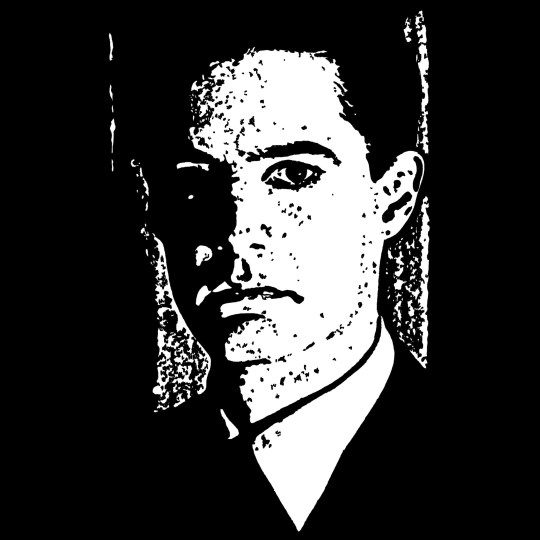
#happy birthday#kyle maclachlan#twin peaks#twin peaks: fire walk with me#dune#blue velvet#the hidden#science fiction#horror movies#david lynch#psychological thriller#psychological horror#movie art#art#drawing#movie history#pop art#modern art#pop surrealism#cult movies#portrait#cult film
58 notes
·
View notes
Text
By: Anonymous
Published: Oct 16, 2023
When my first son claimed he was trans, I eagerly ‘affirmed’ him. When his three-year-old brother decided he wanted to be trans, too, I realized I’d made a terrible mistake.
I was a social-justice organizer and facilitator before social justice took over the progressive world. I was at the nascent movement’s forefront, introducing the concept of intersectionality to organizations and asking people to share their pronouns.
My friends and I felt like we were the cool kids, on the vanguard of the revolutionary wave that would change the world. We were going to achieve what people in that milieu call “collective liberation.”
Within this context, I came out as a lesbian and identified as queer. I also fell in love, entered a committed relationship, and gave birth to a son. Two years later, my spouse gave birth to our second son.
Having children and experiencing the love and devotion I felt toward them, was a game changer for me. I began to experience internal tensions. My thinking was split between what I felt instinctively as a mother; and what I “should” be feeling and doing as a white anti-racist social-justice parent.
Because I’d felt victimized by my parents’ rejection of my sexuality, I wanted to make sure to honor my own children’s “authentic” selves. In particular, I was primed to look for any clues that might suggest they could be transgender.
My spouse and I raised our sons with gender-neutral clothes, toys, and language. While we used he/him pronouns, and others called them boys, we did not call them boys, or even tell them that they were boys.
In our everyday reading of books or descriptions of people in our lives, we did not say “man” or “woman”; we said “people.” We thought we were doing the right thing, both for them and for the world.
Even when our first son was still young, he already struck us as different from other boys—being both extremely gifted and unusually sensitive. By age three or so, he started to orient more toward the females in his life than the males. “I like the mamas,” he would say.
We started to attribute some of this difference to the possibility that he was transgender. Instead of orienting him toward the reality of his biological sex by telling him he was a boy, we wanted him to tell us if he felt he was a boy or a girl. As true believers, we thought that we should “follow his lead” to determine his true identity.
At the same time, I was taking a deep dive into the field of attachment and child development. This made me understand that attachment is hierarchical; and that parents, not children, are meant to be in the lead. This obviously conflicted with my insistence on letting my child decide his gender. Sadly, it was the latter impulse that won the day.
At around age four, my son began to ask me if he was a boy or a girl. I told him he could choose. I didn’t use those words—I imagined that I was taking a more sophisticated approach. I told him, “When babies are born with a penis, they are called boys, and when babies are born with a vagina, they are called girls. But some babies who are born with a penis can be girls, and some babies born with a vagina can be boys. It all depends on what you feel deep inside.”
He continued to ask me what he was, and I continued to repeat these lines. I’d resolved my inner conflict by “leading” my son with this framework. Or so I told myself.
His question, and my response to it, would come back to haunt me. In fact, I remain haunted to this day. To the extent I was “leading” my son anywhere, it was down a path of lies—an on-ramp to psychological damage and irreversible medical interventions. All in the name of love, acceptance, and liberation.
About six months later, he told my spouse that he was a girl and wanted to be called “sister” and “she/her.” I received a text message about this at work. On the way home that night, I resolved to put all my own feelings away and support my transgender child. And that is what I did.
We told him he could be a girl. He jumped up and down on the bed, happily saying, “I’m a girl, I’m a girl!” We—not our son—initiated changing his name. We socially transitioned him and enforced this transition with his younger brother, who was then only two years old and could barely pronounce his older brother’s real name.
When I look back at this, it is almost too much to write about. How could a mother do this to her child? To her children?
Once we made this decision, we received resounding praise and affirmation from most of our peers. One of my friends, who’d also socially transitioned her young child, assured me that this was a healthy, neutral way to allow children to “explore” their gender identity before puberty, when decisions would have to be made about puberty blockers and hormones.
We sought out support groups for parents of transgender children, so that we could find out if we’d done the “right thing.” It hadn’t escaped my notice that our son hadn’t exhibited any signs of actual gender dysphoria. Was he actually transgender?
At these support groups, we were told, again, what good parents we were. We were also told that kids on the autism spectrum (which our son likely is) are gender savants who simply know they are transgender earlier than other kids.
At one of the support groups we attended, we were also told that transgender identity takes a few years to develop in children. The gender therapist running things told us that during this period, it’s important to protect the child’s transgender self-conception—which meant eliminating all contact with family or friends who didn’t support the idea that our son was a girl. I believed her.
Looking back, I now see her comments in a shockingly different light: this was part of an intentional process of concretizing transgender identity in children who are much too young to know themselves in any definitive way. (One set of parents attending the group had a child who was just three years old.) When identity is “affirmed” in this manner, children will grow up believing they are actually the opposite sex.
The therapist endorsed the same approach that many adolescents use on their parents, who are urged to write letters to grandparents, aunts, and uncles to announce the child’s transgender identity. In these letters, the conditions of continued social engagement are made clear: Recipients must use the new name and new pronouns, and embrace the new identity, or they will be denied contact with the child.
After about a year of social transition for our older son, our younger son, who was by now only three years old, began to say he was a girl, too. This came as a complete shock to us. None of the things that made our older son “different” applied to our younger son. He was more of a stereotypical boy and didn’t show the same affinity for the feminine side of things that his older brother did.
The urge for “sameness” is a primal attachment drive in many family members. We felt that our younger son’s assertion of being a girl likely reflected his desire to be like his older sibling, in order to feel connected to him.
His claim to be a girl became more insistent when both brothers went to school part-time, because their program included pronoun sharing. Why could the older sibling be a “she” when the younger sibling couldn’t? Our younger son became more insistent, and we became more distressed.
We made an appointment to see the gender therapist whom we’d met at the support group. We truly believed that she would be able to help us sort out who, if anyone, was actually transgender.
To our shock, the therapist immediately began referring to our younger son as “she,” stating that whatever pronouns a young child wants to use are the pronouns that must be used.
She patronizingly assured us that it might take us more time to adjust, since parents have a hard time with this sort of thing. She added that it was transphobic to believe there was anything wrong with our younger son wanting to be like his older transgender sibling.
When I pushed back and asserted that I wasn’t yet convinced our younger son was in fact transgender, she told me that if I failed to change his pronouns and honor his newly announced identity, he could develop an attachment disorder.
We were unconvinced. But, again, we wanted to do what was right for our son and for the world. We decided to tell him he could be a girl. And that night at dinner, we told him that we would call him “she/her.”
Right after dinner, I went to play an imaginary game with him, and I wanted to be affirming. So I put a big, warm smile on my face and said, “Hi, my girl!”
At this, my younger son stopped, looked at me, and said, “No, mama. Don’t call me that.” His reaction pierced me to my core. I didn’t turn back after that.
For the next two years, my partner and I dug deeper, agonized, and then continued digging again. Everything we thought we knew or believed that had led us to socially transition our older son began to unravel.
I continued to study the attachment-based developmental approach to parenting and learned more about autism and hypersensitivity. We decided not to socially transition our younger son. Not only was he not transgender, we now realized, but our older son probably wasn’t either.
He was just a highly sensitive, likely autistic boy who saw a girl identity as a form of psychic protection. It also provided him a way of attaching to me through sameness.
My spouse and I decided that since we’d been the ones who’d led him down this path, we were the ones who needed to lead him off of it.
A year ago, just before our older son’s eighth birthday, we did just that. And while the initial change was hard—incredibly hard—the strongest emotion exhibited by our son turned out to be relief.
In the days following my first conversation with him about going back to his birth name and pronouns, during which I told him that males cannot be females and that we were wrong to tell him he could choose to be a girl, he got very mad at me, then sad. Then, the next day, I felt my son rest. I felt him release a burden, an adult burden that he, as a child, was never meant to carry.
Since that time, we’ve all been healing. My son is now happy and thriving. We’ve watched him come to a deeper peace with himself as a boy.
Our younger son is also thriving. Once his older brother became his older brother again, he happily, and almost immediately, settled into his identity as a boy.
I feel like someone who’s escaped a cult—a cult whose belief system is supported by our mainstream culture, the Internet, and even the state.
I fear for the future—the future of sensitive, feminine, socially awkward boys. I fear what the world will tell them about who they are.
But no matter what the future holds, I will never ever stop fighting to protect my sons. I am no longer a true believer.
#gender ideology#queer theory#genderwang#gender cult#social transition#autism#social justice#critical social justice#affirmation model#gender affirming#gender affirmation#trans identity#gender identity#child psychology#religion is a mental illness
111 notes
·
View notes
Text
Round 5 (main finals): Chara Dreemurr (Undertale) vs. Amane Momose (MILGRAM)

Propaganda below the cut
Chara Dreemurr (?):
They were constantly blamed for killing all of monster kind in the no mercy route, despite players choosing to go that route. People ignored that they sacrificed themselves to attempt to free the monsters from the underground.
----
everyone wants to blame their own actions (genocide route) on chara, who is a literal child. i don’t know how to tell you this but you are the one playing the game. it’s about YOUR CHOICES. chara is there is punish you for that, you killed the only family that ever loved them! how could they not be upset at that! also if you don’t mind, here’s a good video essay on the subject
youtube
Amane Momose (12):
Amane was voted guilty in the first trial so that she would acknowledge her guilt. It backfired, and now she’s considered a threat. Well, everyone is a threat, but nobody’s threat level has been as heavily discussed and debated as hers. Consider the next prisoner in line, Mikoto. He’s objectively more dangerous and cannot be restrained. He beat up the guard in trial 1, and he was able to hold his own when the other guilty prisoners were attacked. But a good incentive to forgive him is so that he will calm down. You know what? That’s a good incentive to forgive Amane too! But she *can* be restrained, so a good portion of the discussion went into how she should be voted guilty so she *will* be restrained and not a threat. Since her vote was a near 50/50, of course a good chunk of the voters expressed dissatisfaction with her forgiven verdict. Some are already planning to vote her guilty for trial 3, calling her a “lost cause”. She hasn’t even done any concrete harm yet. Hold the pitchforks until she actually causes harm, please? And what if she *was* voted guilty in trial 2? We’ve been warned that she will continue to deny our judgement. A second guilty verdict won’t make her better either, and then what? She’d be called a “lost cause” as well. There is no winning with her.
----
Where do I even start? So first of all she’s an cult child who was physically and mentally abused and tortured by her parents and then (presumably) murdered her mother after her mother killed a cat that she took care of.
Now everyone in Milgram is a murderer but when Amane came and her MV showed her murder and circumstance in an admittedly highly fictionalized depiction of it the audience decided to…repeat the cycle of abuse!
She was voted guilty for the main reason of “teaching her” and helping her “realize that she was abused.” I would like to note that this tough love approach is something her parents utilized against her. “We are only doing this to help you.”
So the audience replicates Amane’s abusers and repeats the cycle of abuse and that’s pretty shitty but it isn’t exactly “Fuck Em Kids” level.
And then Trial 2 happened. Cause Amane is bitter and angry and horrifically traumatized so she acts aggressive and hostile. Especially towards another prisoner.
Now, again, everyone here is a fucking murderer (of atleast could be constructed as one) These people being able to Harm is a core concept of this series.
Yet for some reason it feels like people treat Amane as a “delusional creepy kid who wants to kill people” which completly takes away the nuance of her character. She does have the capacity to harm! Everyone here does! She’s not Uniquly Dangerous! She just has a Reason to be Dangerous. A Reason we GAVE HER by REPEATING THE CYCLE OF ABUSE.
In short: In a series full of Murderers I’m honestly a bit pissed that the 12 year old abuse victim is the one who’s treated like the guy from American Pyscho.
----
TL;DR: "We metavoted this abused, indoctrinated child guilty in trial 1, but it didn't work. Now she is a threat to three grown adults: one who is fully free and two whom she has been shown to get along with. Please metavote her guilty again so she will be restrained and unable to attack them, even though that means subjecting her to further psychological torture." Amane Momose is the youngest of ten murderers, prisoners of Milgram who are to be judged innocent (forgiven) or guilty (unforgiven). In the first interrogation (voice drama), she said that what she did was in line with her religion's doctrines. If we judged her the "wrong way", she said she will just deny the verdict. Combining the voice drama and music video, you could piece together that she was raised in a cult and abused, even though she is cheerful and downplays her pain. She never shows *who* she killed, only *why* she did. After the first day of her vote, she was 81% innocent, but this wouldn't last the whole three months. Many people voted her guilty so she would "see her sins", part of the practice commonly known as "metavoting". Her innocent percentage rapidly decreased, and she hit guilty in the last 15 days, finishing at 51% guilty. At the end of the first trial, Jackalope (who is something like a host) went over all the prisoners' verdicts and commented on the general reasoning. When he got to Amane, he *laughed* at the audience for voting that way to make her realize her sins. Trial 2 rolled around, and it was revealed that Amane's victim was her abuser. On day one, she was at 74% innocent. Seems like a cut-and-dry case now, right? Well... in the intermission, two of the prisoners (Fuuta and Mahiru) were badly beaten up and became reliant on the care of Shidou, a doctor. Amane became hostile to Shidou because what he was doing was against her beliefs. She visited all three of them on their birthdays to convince them to change their ways. She seems to be especially close to Fuuta, who is now murmuring about salvation. Guilty prisoners are psychologically tortured, forced to listen to voices that reject their beliefs. Fuuta and Mahiru both say that the mental strain is worse than their physical injuries. But Amane, who also looks worse for wear, was thrown under the bus because she isn't injured and is considered a physical threat to them (never mind that she gets along with them). She's considered a threat to Shidou, a grown man who is twice her size and fully free, while she is partially restricted by the long sleeves in her trial 2 uniform. She might indoctrinate Fuuta even though, in a prison of ten people and one guard, she's the only voice of her cult. Fortunately, she got a break. Her vote was falling at a similar rate to the first trial. But this time, it stabilized at 51% innocent, 12 days before the end of her vote. But there's no way this is over.
#yall hate kids tourney#round 5#undertale#undertale spoilers#chara undertale#chara dreemurr#chara#milgram#milgram project#amane momose#momose amane#cw suicide#cw self sacrifice#cw child death#cw child abuse#cw cults#cw torture#cw psychological torture#cw animal death#Youtube
67 notes
·
View notes
Text


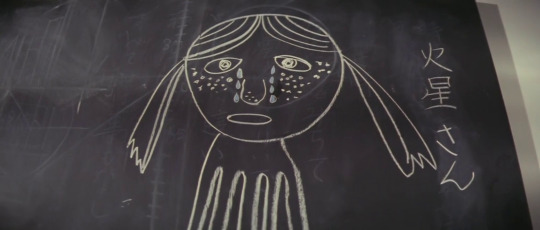








Yumeno Kyusaku's Girl Hell (1977)
#Yumeno Kyusaku's Girl Hell#my posts#film#movies#horror movies#horror film#1970s horror#70s horror#japanese film#japanese horror#cult movies#exploitation film#exploitation movie#yumeno kyusaku#girl hell#Revenge Movies#horrorcaps#horror stills#screencaps#movie titles#Masaru Konuma#horror#yuko asuka#Nikkatsu#psychological horror#Shoujo Jigoku#raging hell fires#horror community#horroredit
62 notes
·
View notes
Text

Not gonna get into danganronpa another spoilers because this whole scene is something else that I’m still processing but I absolutely love this line. Like to bring up milgram I think this is an idea which can reflect on lots of the characters as well. The idea of basing your entire existence off of a certain thing/person/ideology and then for something to happen that completely destroys that. Your entire person has been stripped away and just what’s left? You can’t comprehend your own existence or meaning without that specific attachment and you start to question all of your actions based off that…
I can only really think of John, Kotoko, and Es here (and possibly Amane and Mikoto to an extent). And John bases his life off of Mikoto, Kotoko upholding justice, and Es being the warden.
John’s idea of his whole existence and reason for being is Mikoto. It’s the only reason he believes he exists and if he were to fulfill his role he’d “disappear” as he would be completely worthless without him. John tries to repress and ignore his humanity and reduce himself as a tool to protect Mikoto and that’s all he can see himself as. But now Mikoto’s starting to not deny his existence and feels pure hatred for everything about him. And what will happen to John, when the person he’s dedicated his entire life to and desperately wants praise from, denies his existence? What will he be but some worthless existence that is only a burden, to him.
Kotoko. An ideology of upholding justice and punishing evil that has completely overtaken her. She has pushed herself into a role of a “fang” for justice, protecting the weak and persecuting evil. But even so matter how much she tries, she knows her goals are unreachable. She denies relationships and attachments to other people based on this ideology. Kotoko admits that she does feel attachment to the prisoners, but has to deny them in order to fulfill the role as a tool. And believes that pain and violence is necessary to achieving a greater good. Trying to deny any regret because wouldn’t it be easier to believe you’re entirely in the right? She latched onto Es, believing them to be similar as the warden who carries out judgement on wether the prisoners are forgivable or not. But now, Es has denied her whole ideology, her whole existence due to the pain she’s caused. Kotoko wants to believe that what she did was right and that Es, another enforcer of justice would accept her, because that’s how it is.
And Es… they’re the warden of the prison. There’s nothing more to them than that they believe. Es has no memories of their identity or past before Milgram and immediately latched onto the identity given to them, of being the guard. Es took this role as their entire identity, an extension of the milgram system in order to interrogate and judge prisoners. I think Muu put this best.
“Warden-san, we call you "warden" because that's what you are, right? And I was assigned the role of prisoner, but that doesn't mean I'm now nothing but a prisoner at heart, too. After all, I'm still me.”
Es has an unstable sense of identity, to the point they latched on to the first thing they were given in order to give themselves a purpose and a meaning for existence. And Kotoko calling them “imperfect caused them to question their identity. But as the story progresses Es will probably begin to learn about the audiences control and the truth behind what they assumed to be their verdicts. That their will never was 100% their own. Who knows what Es’ past was, but eventually they’ll likely have to tackle it and their whole identity, the warden, the arms of milgram, is gone.
gonna think about Mikoto and Amane here as well. Mikoto, although may not seem to be as first, focuses his entire identity around other people. He’s the friendly sociable guy who’s easy to chat with. But that’s all he believes he should be, I guess. As perhaps this mindset is upheld by an inherent fear of other people rejecting him, so he focuses all his attention and identity on being a social person. He’s never truly friends with people, as perhaps that would be “too close” and open up the possibility for danger. He doesn’t completely deny his identity like the others, but he molds and shapes it in a way that is acceptable to others. He likes what everyone else likes and does what everyone else does so the fear of being rejected for being different won’t hurt him. But now he’s stopped denying John’s existence and his DID, believing himself to be crazy, and to be completely rejected from other people, his entire sense of identity to an extent. And especially with John scaring other people off with the mindset that will help Mikoto, he has now been completely distanced from everyone else and now has to come to terms with himself, but not the ideal persona he put on to be acceptable to other people.
Amane is a more different case as she in a way has rejected that idea, but not completely. Growing up in a cult it’s very likely that she was always conditioned that she was just a servant for god. That all the good things she did were actually god blessing her and all the bad things a fault of her humanity, herself as a person. She is in a unstable relationship with the whole submitting her personhood to her religion, as she sacrificed her ideologies in order to help a cat. But at the core, that wasn’t about herself and her identity, rather a focus on the cat’s life. Amane’s murder was her will. Rejecting everything and fighting for her life in direct opposition to what she has been taught her entire life and how her identity should be, a rejection of that and a glance into “herself”. But once again, this murder wasn’t entirely self motivated. She’s still broken enough that she can’t fully grasp herself as a person besides god and religion. And a large cause of her murder was out of the death of the cat, rather than simply protecting herself. Amane still slips back into the belief that her personhood is entirely dedicated to god. As she tried to convince herself and Es that the only reason she killed is because they deserved religious punishment and she is in the right for carrying out god’s will, once again denying her personal reason for doing so. Reducing herself to “we” on behalf of her religion, that this isn’t herself anymore. Amane is in a limbo between rejecting her personhood for god, but at the same time rejecting the suffering she’s been through in order to save “herself”. Amane’s case is so interesting, as there’s no clear answer of what she believes in here, and it is truly fascinating.
#milgram#Milgram theory#milgram analysis#amane momose#mikoto kayano#john kayano#john milgram#kotoko yuzuriha#es milgram#uhhhh this was meant to be a quick analysis how did this turn into an exploration of the identities of 5 characters#And comparing it to a scene from dra which focused a lot around the loss of someone’s beliefs completely destroying their identity?#May analyse that scene directly because the whole philosophical and psychological concepts coming into play there is just soooo cool#and man I was kinda figuring out stuff as I was writing this but like I said it’s so interesting how Amane isn’t completely dedicated to go#Like the other characters I mentioned who have dedicated their whole identities to something#And Amane’s at the struggling between her true self and her perfect religious self#But perhaps she doesn’t entirely realise this conflict going on within#Which is interesting as a realisation of their identities would probably cause the other characters to lose it#But Amane it’s coming to her in a different way#She’s so strong uahhhahhajajshshshs#Tw cults#Ok now thinking about this more I’m starting to see this whole ideology apply to other dra characters as well#Man this is just so interesting#Like Kinji although having nowhere near as bad of a situation of amane was in a way forced to repress his emotions his entire life#Due to religious reasons and to devote his life to god and reject personhood#Surprisingly he’s actually not a bad person but still is very stoic and avoids other people due to being taught those values#And kinji’s a whole parallel to Tsurugi so this would be really interesting#I would talk about Tsurugi here but this is primarily a milgram post so for everything he’s like kotoko with a dedication to justice#But handles it in a very different way#His story is just way to long to analyse now#But hey this is an invitation to play (or watch bc downloading the game is hard technically) danganronpa another
24 notes
·
View notes